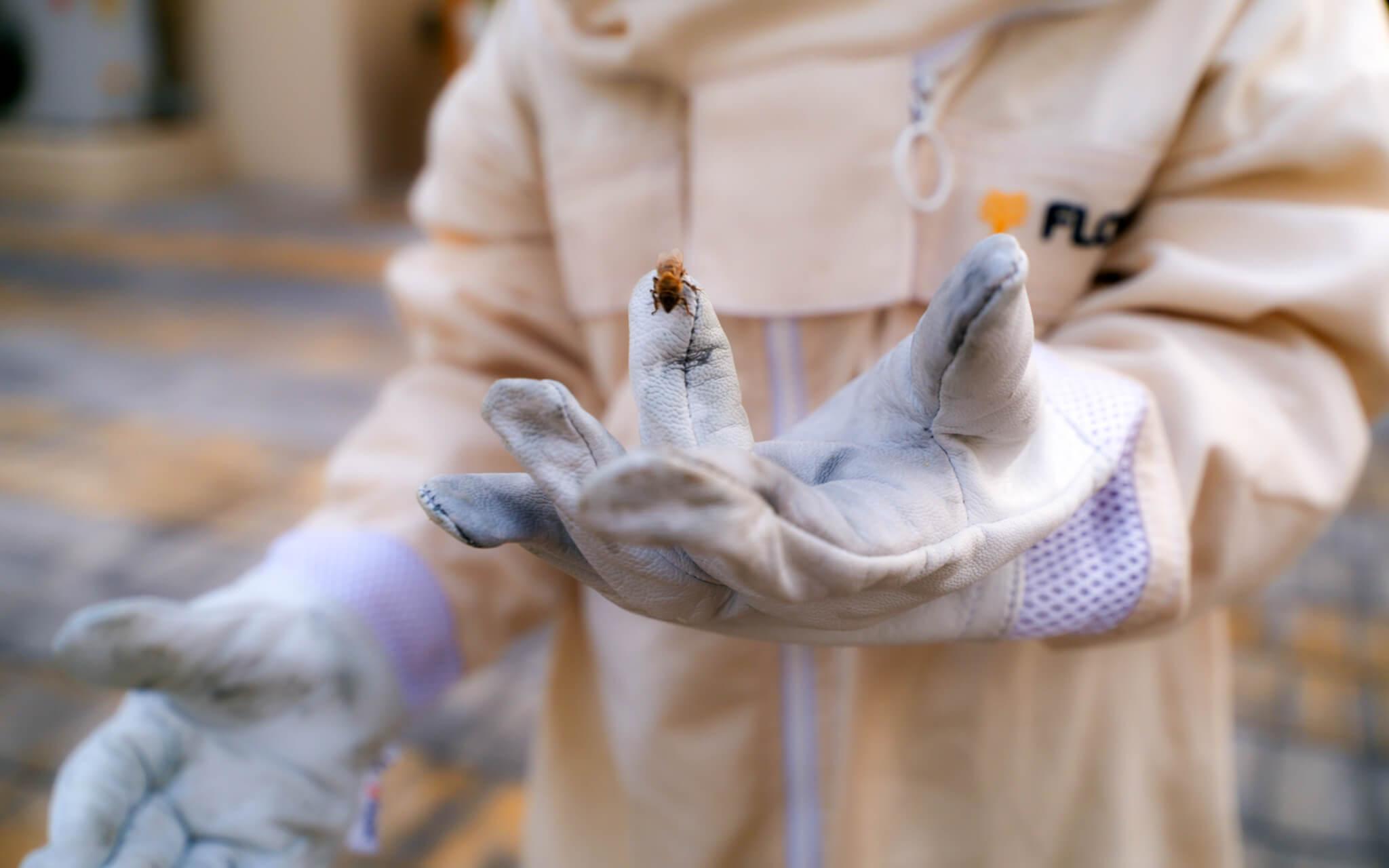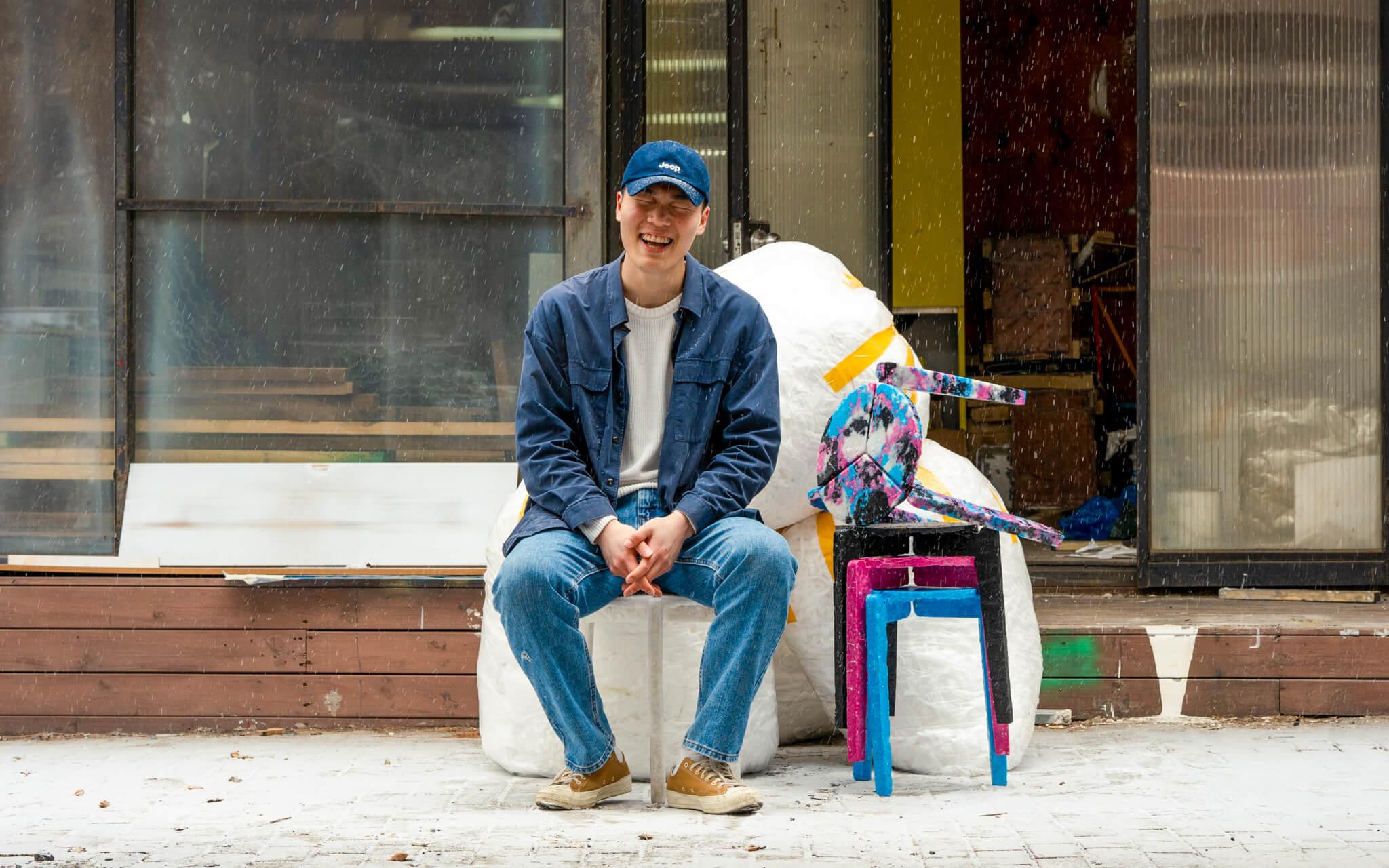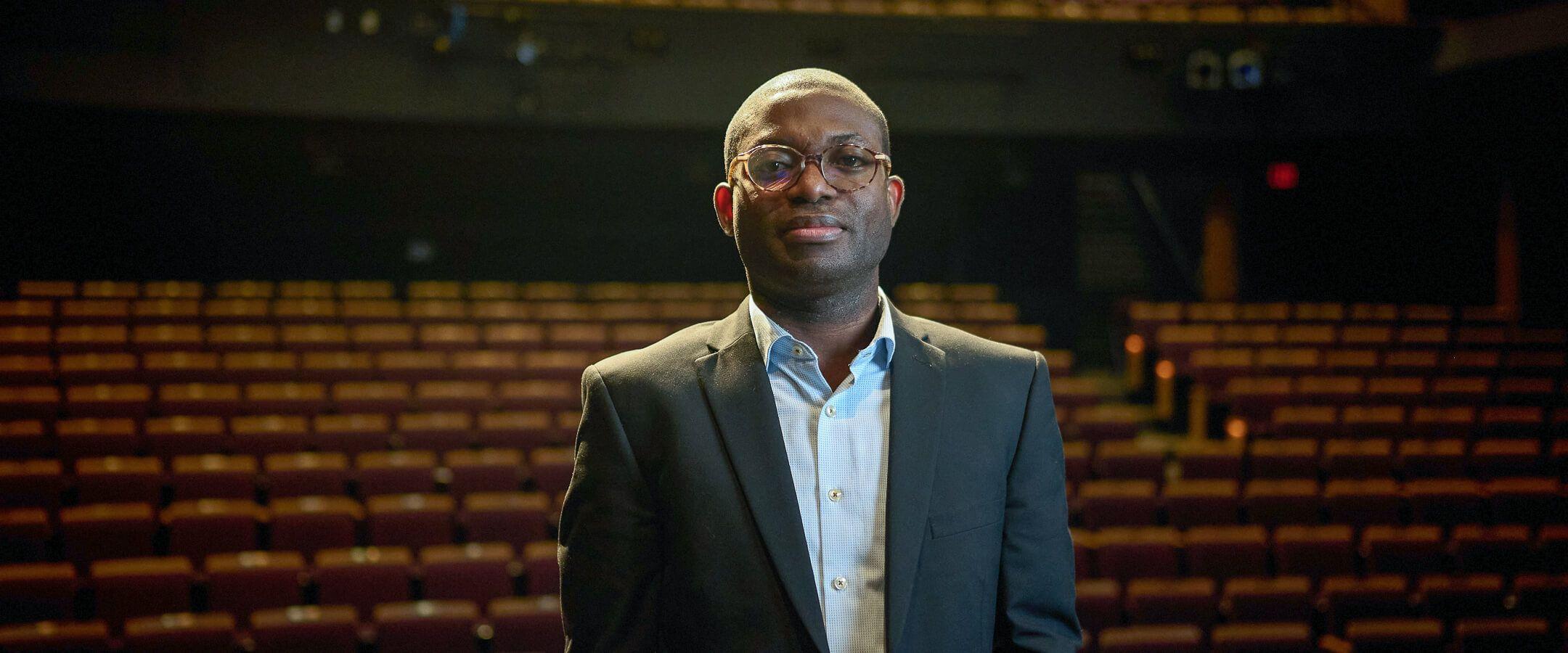It’s Only Waste if You Throw it Away
Jumoke Olowookere's laughter rings out above the vibrant hustle and bustle of Ibadan, Nigeria, inviting all to embrace the beauty and potential in everyday discarded materials. As the founder of The Waste Museum, Jumoke is revolutionising the way her community perceives and utilises waste.
With a beaming signature smile Jumoke Olowookere welcomes visitors, young and old, to The Waste Museum. “It’s a showcase, a centre to inspire change,” she shares proudly. Inside the warm walls of the museum, colourful art adorns the walls, recycled tyres become planters overflowing with greenery, and old doors find new life as canvases.
This magical oasis is the manifestation of Jumoke's journey of self-discovery and her mission to change how we view items usually doomed for disposal. But her story began in the most ordinary of places - her own kitchen.
"While I was on maternity leave with my twins, for the first time, I started really seeing the amount of waste I was generating," she recounts. "I asked myself, ‘Why do we have to throw waste away? Why can’t we find something else to do with it?’ " These questions would change the course of her life.
“I started keeping everything I would usually throw away,” she laughs. She began by dedicating a room in her home to piles of papers and a growing collection of glass bottles, cans, eggshells, and more. This new obsession caused much amusement amongst her friends. "My friends would laugh, asking me why I was playing with so much rubbish!” Jumoke shares, but despite the concern over her occasional hoarding, her connection to this newfound passion was unshakable.


A chance encounter with a craft book with ideas for transforming waste into art became the next defining moment. "I knew I had to pick up that book. And that was how I started learning how to turn everyday trash into treasure," Jumoke recalls.
As she dove deeper into upcycling, Jumoke found herself at a crossroads: her job as a secretary at a drilling company no longer fulfilled her. "I lost interest in my work. I wanted to do something more meaningful," she confesses. Searching her soul, Jumoke discovered her true calling — sharing the joy of creation and the power of waste transformation with others, especially children.
What started as an early day camp blossomed into a larger mission as Jumoke honed her skills as a teacher and artist. “I started teaching the children how to turn the waste they generate into playgrounds and other functional, durable arts," she explains. Over a shockingly short period of only 13 months, Jumoke reached more than 25,000 students and 2,500 teachers.
Jumoke’s vision extended beyond the schools of Ibidan. She dreamed of creating a space where even more people could experience the magic of waste transformation firsthand. Surprised to find no such place existed in Africa, Jumoke took matters into her own hands.
"If nobody's doing it, then I will," she declared.
Thus, The Waste Museum was born in 2019 – a testament to Jumoke's irrepressible drive to make a difference. Visitors are greeted by lush gardens nourished by compost from rabbit and chicken droppings, while captivating art installations made from plastic bottles, tyres, fabric scraps, and metal sparkle in the sunlight. It's a living embodiment of the circular economy Jumoke champions.
If nobody's doing it, then I will.
The journey, however, hasn't been without its challenges. Changing people's mindsets about waste remains an ongoing battle. "Our biggest challenge has been people's resistance to change," Jumoke sighs. Despite initial scepticism from her local community, she refused to give up. "We've been persistent about our story. We won’t stop."
This perseverance has become a defining trait for Jumoke and her team. "We’ve learned to be tenacious and committed, standing strong in the face of opposition. It builds inner strength."
Financial constraints and limited space have also tested Jumoke's resolve, but she's learned to work within her means and think creatively. "If we can only finance two out of ten projects, we start with two and patiently wait for more resources,” she explains. "We’re finding innovative ways of using our small spaces, like vertical gardens. It’s actually helped our creativity."


For Jumoke, every piece of waste repurposed is a personal victory. "It's my mission to save every item from ending up in the landfill," she declares. By intercepting waste at the source, she believes real change is within reach.
Through the Waste Museum, Jumoke is not only teaching people about sustainability but inspiring a new generation. Her message is one of empowerment and limitless possibility. "Waste is not waste until you throw it away. It’s a resource waiting to be transformed into something new," she shares.
As laughter echoes through the colourful corridors of the Waste Museum, a profound sense of hope fills the air. In this haven built on society's discards, Jumoke Olowookere is proving that with creativity, determination, and an unbreakable spirit, we all have the power to create a more beautiful world.
Most Popular
The Climate Tribe delivers stories about Biodiversity and Conservation, Circular Economy, Food and Water , and how they intersect with climate.
Subscribe
Get the latest stories inspiring climate action around the globe straight to your inbox.






